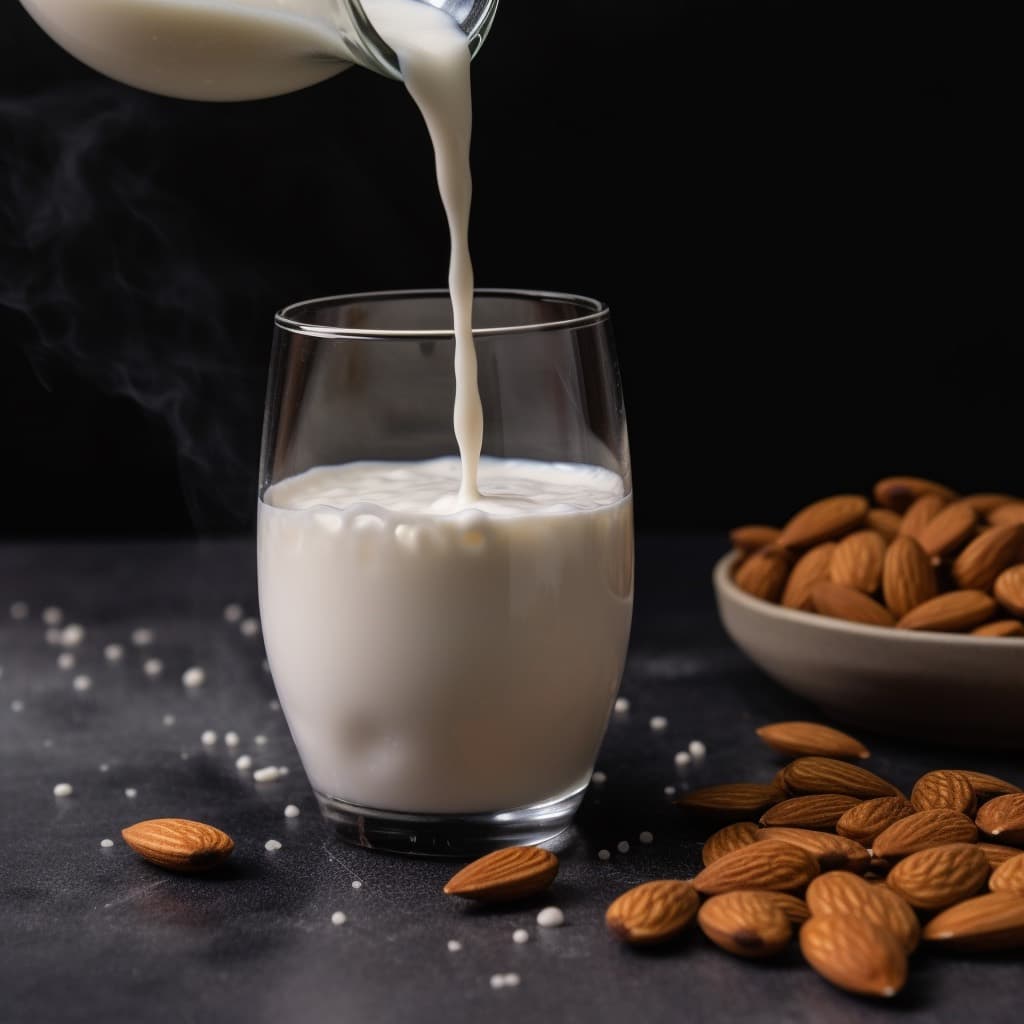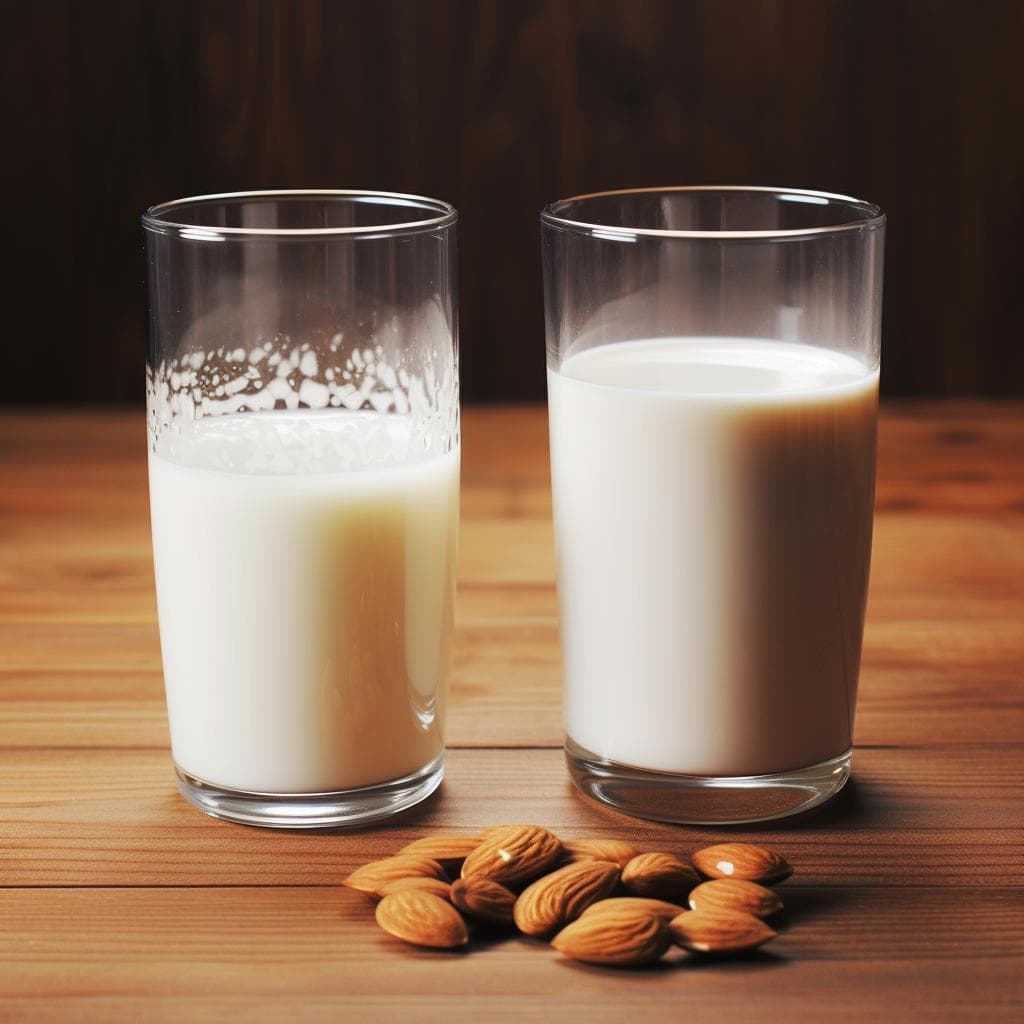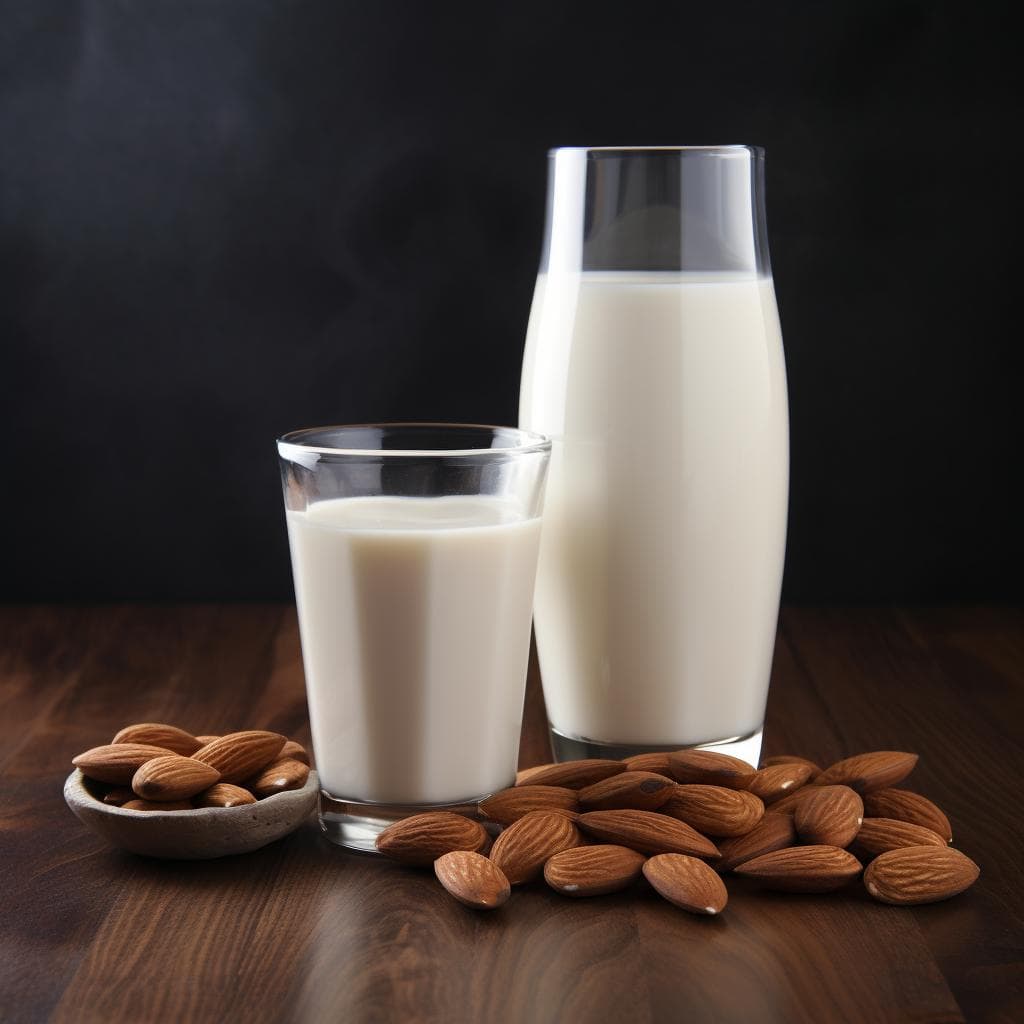With the rise in popularity of plant-based diets and the increasing awareness of lactose intolerance and dairy allergies, the demand for plant-based milk alternatives has grown significantly. Plant-based milks offer a variety of options for individuals looking to replace or reduce their consumption of dairy milk. In this article, we will explore different plant-based milk alternatives, their benefits, and help you determine which one might be the right choice for you.
Almond Milk
Almond milk is one of the most popular plant-based milk alternatives. Made from ground almonds and water, it has a mild, nutty flavor. Almond milk is naturally low in calories and contains no cholesterol. It is a good source of vitamin E and can be a suitable option for those with lactose intolerance or nut allergies. However, it may not be suitable for individuals with tree nut allergies.
Soy Milk
Soy milk is derived from soybeans and has a creamy texture with a slightly sweet taste. It is a great source of plant-based protein and contains essential amino acids. Soy milk is also rich in vitamins and minerals, including calcium and vitamin D. It is a versatile option and can be used in various recipes. However, individuals with soy allergies or thyroid conditions should exercise caution and consult a healthcare professional.
Oat Milk
Oat milk is made from oats and water. It has a mild, slightly sweet flavor and a creamy consistency. Oat milk is naturally free from lactose, nuts, and soy, making it suitable for individuals with allergies or intolerances. It is also a good source of fiber and contains beta-glucans, which are known for their heart-healthy properties. Oat milk is an excellent choice for those looking for a sustainable and environmentally friendly option.
Coconut Milk
Coconut milk is made from the flesh of coconuts and has a rich, creamy texture with a subtle coconut flavor. It is high in healthy fats and provides a source of medium-chain triglycerides (MCTs). Coconut milk is naturally lactose-free and can be a suitable option for individuals with lactose intolerance or nut allergies. However, it is higher in calories compared to other plant-based milks, so moderation is key.
Rice Milk
Rice milk is made from milled rice and water. It has a thin and watery consistency with a slightly sweet taste. Rice milk is naturally free from lactose, soy, and nuts, making it a suitable option for individuals with allergies or intolerances. However, it is lower in protein compared to other plant-based milks. Rice milk is a good alternative for those seeking a light and refreshing option.
Hemp Milk
Hemp milk is made from hemp seeds and water. It has a creamy texture and a slightly nutty flavor. Hemp milk is a good source of omega-3 fatty acids and contains all nine essential amino acids, making it a complete protein source. It is also rich in vitamins and minerals, including calcium and vitamin D. Hemp milk is suitable for individuals with lactose intolerance, nut allergies, or soy allergies. However, it may not be as readily available as other plant-based milks.
Choosing the Right Plant-Based Milk Alternative for You
When selecting a plant-based milk alternative, consider your dietary needs, taste preferences, and any allergies or intolerances you may have. Experiment with different options to find the one that suits your lifestyle and complements your favorite recipes. Remember to check the ingredient labels for added sugars and other additives if you prefer a more natural and wholesome option.
FAQs about Plant-Based Milk Alternatives
Can plant-based milk alternatives be used as a substitute for dairy milk in recipes?
Yes, plant-based milk alternatives can often be used as a substitute for dairy milk in recipes. However, the consistency and taste may vary, so it's best to experiment and adjust accordingly.
Are plant-based milk alternatives suitable for children?
Plant-based milk alternatives can be suitable for children, but it's important to ensure they receive adequate nutrition, including essential vitamins and minerals, from other sources. Consult with a healthcare professional for personalized advice.
Are plant-based milk alternatives fortified with calcium and vitamin D?
Many plant-based milk alternatives are fortified with calcium and vitamin D to provide similar nutritional benefits as dairy milk. Check the labels to ensure the product you choose contains these important nutrients.
Conclusion
Plant-based milk alternatives offer a range of options for individuals seeking alternatives to dairy milk. Whether you choose almond milk, soy milk, oat milk, coconut milk, rice milk, or hemp milk, each option has its unique benefits and flavors. Consider your dietary needs, taste preferences, and allergies or intolerances when selecting the right plant-based milk alternative for you. Embrace the versatility and enjoy the goodness of plant-based milks in your favorite recipes and beverages.




